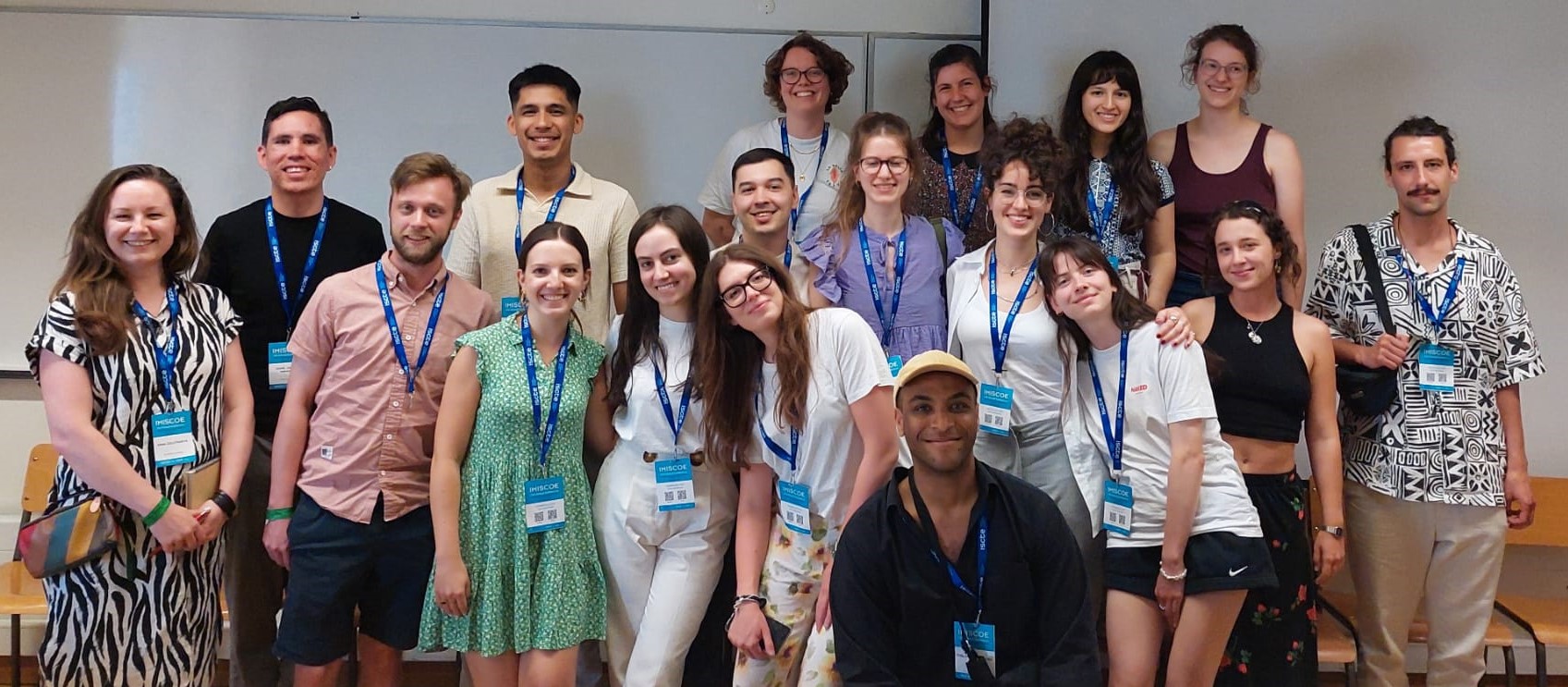Twenty EuMIGS Double Degree students participated in the IMISCOE Annual Conference 2024 in Lisbon on the topic of reflexivity in migration research. In two EuMIGS workshops, students presented their recently finished or ongoing master thesis projects and discussed what it means to do research on migration and mobility while being on the move themselves. As Double Degree students, they spent the two years of their studies at the master level at two different universities in Europe. The EuMIGS programme therefore brings together migration and mobility as a (research) practice and as an object of scientific inquiry, and the students’ research experiences are a vantage point for reflecting on how the two connect.
Doing migration research on the move
The first EuMIGS workshop focussed on the practical challenges and opportunities of doing migration research while being on the move. Students were invited to reflect on how their own mobility shaped their interests, their access to different fields, and the methods they used. Also, what parallels and differences are there between students as migrant researchers and their research participants? The ten workshop participants – whose geographical trajectories over the past two years have all been different – pointed out how moving can lead to a perception of not knowing any of the two contexts nor the local languages well enough to conduct research in these contexts and languages. Students therefore often resorted to conducting comparative research or analysing policies at the European level and working with written documents and quantitative data rather than qualitative interviews. Others accepted the challenge of conducting interviews in a language that they had just learned and of entering the field as an “outsider”, recognizing this particular positionality as an advantage in certain situations. Finally, students discussed that although they form a heterogenous group in terms of nationality, social class, and migration aspirations, they consider themselves rather privileged in comparison to their migrant research participants but also other students who face more hurdles in obtaining a visa. Their own moving made them more aware of these differences. However, feelings of being lost and the energy it takes to resettle in a new place may be considered universal experiences that many people who move share, independently of their socioeconomic status.
Travelling (with) concepts
The second EuMIGS workshop focussed on concepts and categories in migration research and how these travel across different national contexts. After briefly presenting their individual master thesis projects, ten students discussed how being on the move shaped the concepts they use, and what the challenges are of using concepts and categories in a transnational context. For several participants, moving led them to reconstruct their initial concepts, partly because entering a different master programme implies a shift in the disciplinary focus of one’s studies, and the expertise of the teaching staff at both universities varies. But also, concepts may not fit with every research field: For instance, does it make sense to refer to “refugees” and the “host state” in a country that does not recognize people nor itself as such, respectively? And how to compare when categories are constructed differently and have different connotations in different contexts? These questions may ultimately be productive, as they take the researcher to think further about the concepts and categories they use. Students came up with mixed concepts that better fitted their research object, developed a less essentialist understanding of the categories they used, or decided to study one context in-depth instead of comparing what they realized were two very different realities. Moreover, studying in English in two non-English speaking national contexts while often working with data that is not in English raised the question of translatability: Can concepts always be translated? Are some things untranslatable, or getting lost in translation? Most participants were hesitant about the possibility to translate everything, even though they understood translation as a central part of what migration researchers do. This difficulty to translate, which led students to use some terms in the original language or to use a translation that only partially captures the meaning of the original concept, calls for more contextualization and sometimes offered a starting point to dive deeper; the frustration that the difficulty of conveying the nuances of a specific concept causes may ultimately contribute to a richer analysis of the research object.

